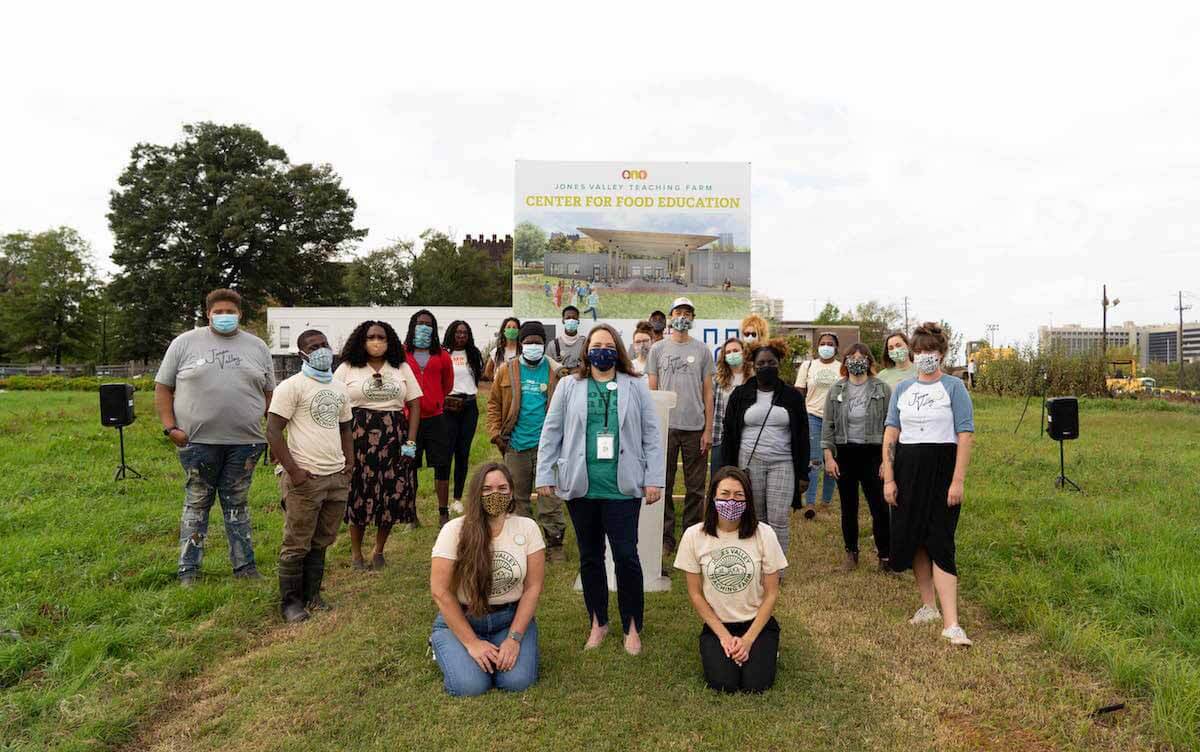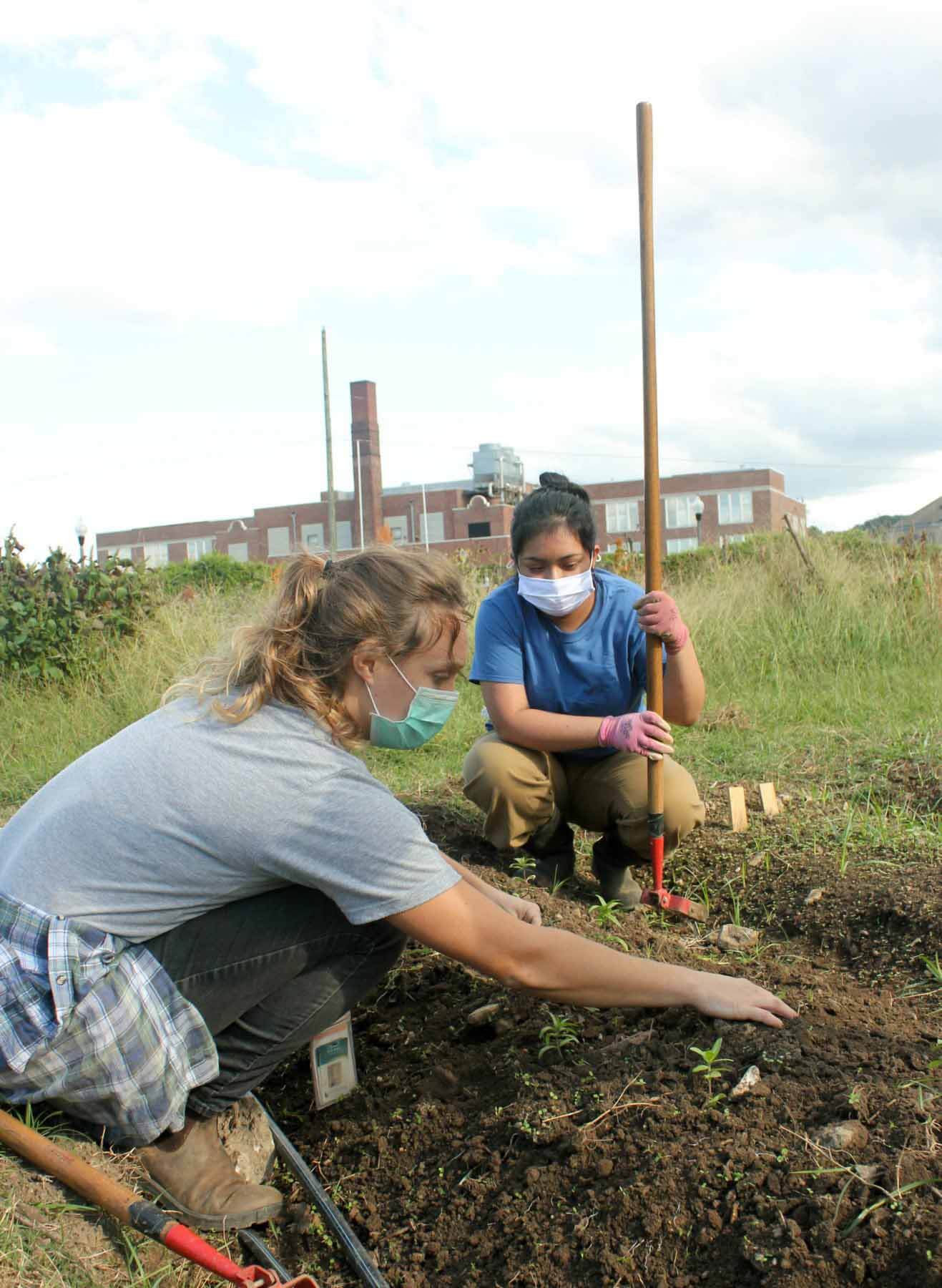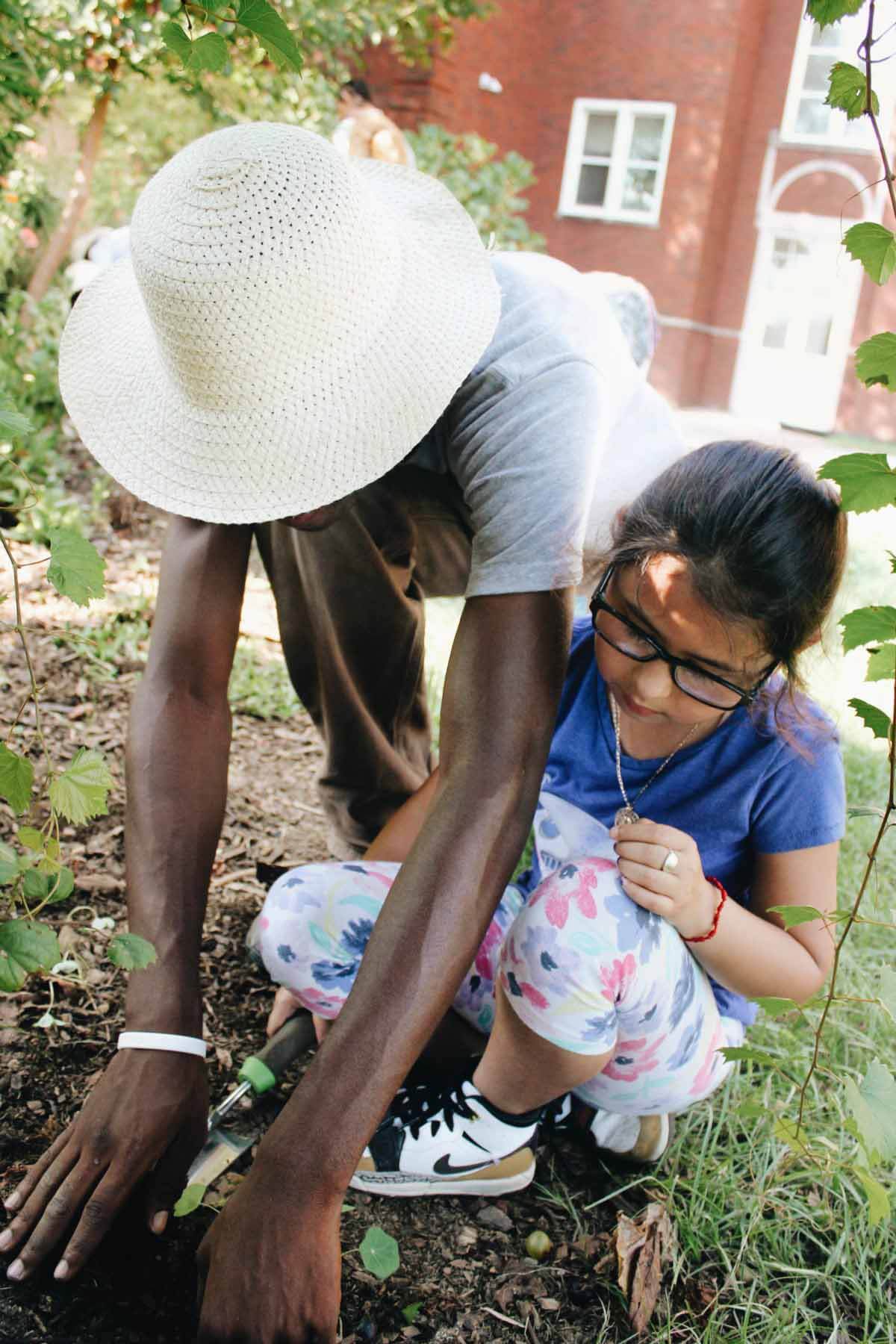For years Jones Valley Teaching Farm (JVTF) has been one of Birmingham’s most beloved community programs. Through in-school and after-school programs, apprenticeships and more, JVTF has become a local leader in efforts to boost academic achievement through food, farming, and the culinary arts. Now, the program is preparing to open a $7.5 million Center for Food Education that’s poised to become a hub for people and organizations — in Birmingham and beyond — interested in food as a pathway to good health and true wealth.
“This is a place for us to put a flag in the ground in Birmingham, AL, and say we are a nationally known food education program and model that needs to be celebrated,” says JVTF Executive Director Amanda Storey of the new center. “We can really start to grow and be who we need to be.”
The new center will be made possible in part thanks to a New Markets Tax Credit allocation provided by Hope Enterprise Corporation (HOPE) and investor Wells Fargo Bank. JVTF also launched its “Ready To Grow” capital campaign to raise additional funds, garnering donations from local foundations and residents who support the JVTF mission.
Founded in 2007, Jones Valley Teaching Farm began with a three-acre city block of land in downtown Birmingham. Since then, the program has expanded and now has seven teaching farms — including farms on elementary, middle, and high school campuses.
The Center for Food Education, which will be located at the downtown farm, will allow JVTF to offer even more for Birmingham students and communities. This includes daily field trips, more community gardening and culinary programming, professional development and training for educators, and increased employment opportunities for graduates of Birmingham City Schools. The center would also make Jones Valley Teaching Farm a destination for people across the country looking to establish similar programs in their own communities.
“Our dreams were limited by our facilities,” says Katie Davis, who serves as Director of Operations for Jones Valley Teaching Farm. “We have this wonderful soul of our organization, and it’s been growing and developing, and this building is giving it a body.”

Katie works closely with ArchitectureWorks and Hoar Construction, two local firms selected to head up the new center’s design and construction. As the director of operations, Katie is charged with making sure all the programs of JVTF run smoothly. She says her job is all about the “not-so-glamorous nuts and bolts,” and it’s bound to get bigger with the opening of the new center. But Katie doesn’t mind getting her hands dirty — literally.
Before her current post, Katie served as the farm manager of the downtown campus, where she got to use skills she learned while studying at the University of California at Santa Cruz’s Center for Agroecology & Sustainable Food Systems. And while she’s excited for Jones Valley Teaching Farm to step into its role as a national leader, she says the work the program does with local students is still what excites her most. She hopes the Center for Food Education will allow JVTF to expand its programs for students and create more opportunities for young people to lead conversations about issues like food sovereignty and food justice.

At the heart of the Jones Valley Teaching Farm model is the idea that food and farming can be used to help students excel as learners and as leaders. “Anything can be learned easier when you have food on the other end of it,” Amanda says. “It’s about actually seeing things you’re learning about in the science book in your hands.” Students can better understand rationing as they grow food for their family on a small plot of land or learn fractions while cooking black bean chili. Students have the freedom of being outside as they learn, and the program helps with social and emotional development, too. “It celebrates the whole child based on how they learn,” explains Amanda.
But when the pandemic hit, lessons had to go virtual. “Our instructors and farmers had to become on-air talent to bring those lessons to life,” Amanda explains. But activities remained hands-on. For one program, they partnered with local chefs to offer virtual cooking lessons and culinary Q&A sessions and provided everything families would need to participate from home. “We were like Shipt and DoorDash together,” Amanda says. The farms kept going, too, and JVTF donated last year’s harvest to local food agencies.
In addition to its in-school and after-school programs, JVTF employs Birmingham City Schools high school students and graduates through its apprenticeship program. Amanda believes that for Jones Valley Teaching Farm to be true to its mission, the program must reflect the community it serves. That’s why currently, 25% of the JVTF team is made up of past students of the program. Amanda says the goal is for students who go through the program to be leaders of the organization in the future.

At 22 years old, Shundria Mack is the youngest person on the Jones Valley Teaching Farm team. A graduate of Woodlawn High School, Shundria has gone through the JVTF high school and graduate apprenticeship programs and helped lead the after-school program Farm Club. Today, she is the JVTF instructor for W.E. Putnam Middle School and Hayes K-8 School. “The kids make it worth it to me,” Shundria says, “seeing them respond and grow to love something they never thought about doing.”
Shundria can easily relate to her students because not so long ago, she was in their shoes. Farming never crossed her mind until a mentor recommended she apply for the JVTF high school apprenticeship. After seeing how the program was not only creating job opportunities for students but also offering affordable fresh produce for the surrounding communities, Shundria was all in. She hopes the new center will bring even more opportunities for young people in Birmingham interested in careers in food and the culinary arts. “I’m excited to see people grow through the program like I did and flourish,” Shundria says. “And I hope I can play a role in their success story.”

No matter what notoriety and accolades come to Jones Valley Teaching Farm through the new Center for Food Education, Shundria wants the program to remain student-focused. “Kids are doing this awesome work,” she says. “They are the root, the foundation of everything.”
To learn more about Jones Valley Teaching Farm, visit jvtf.org.
All images courtesy of Jones Valley Teaching Farm.
**********
To stay in the know on all-things-Birmingham, follow StyleBlueprint on Instagram!



















